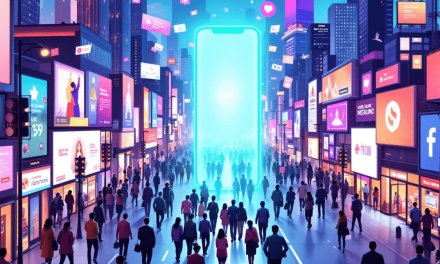BEIJING, July 26, 2023 /PRNewswire/ — WiMi Hologram Cloud Inc. (NASDAQ: WIMI) (“WiMi” or the “Company”), a leading global Hologram Augmented Reality (“AR”) Technology provider, today announced that to study the hologram reconstruction technique based on Generative Adversarial Network (GAN), the Generative Adversarial Network Holographic Reconstruction (GAN-Holo Reconstruction) framework is proposed.
GAN is an unsupervised learning algorithm in the field of deep learning that can generate new, similar data to the input data by finding features in the training data.
The hologram reconstruction technique researched by WiMi is an emerging technique to automatically perform hologram reconstruction by generating adversarial networks. GAN can be used to rapidly generate realistic 3D holograms, thus improving the quality and generation efficiency of holograms.
A GAN usually consists of two deep neural networks called a generator and a discriminator. The generator takes random noise as input and outputs the generated hologram after a series of transformation and convolution operations, while the discriminator compares the generated image with the real hologram and provides accurate feedback to the generator to guide the generator’s improvement. In the process of continuous optimization, the generator and the discriminator will play and learn from each other, and eventually, the generative network can learn to get the distribution of the holograms, thus generating more realistic holograms.
The biggest advantage of the GAN-based hologram reconstruction method is that it can handle complex hologram reconstruction problems, such as objects with multiple depths and reflections. At the same time, this method also has good robustness and adaptability to noise, so that even if the input image is disturbed by noise, the generated hologram can maintain high quality. In addition, this method has a high degree of automation, which can greatly improve the efficiency of hologram reconstruction.
The biggest advantage of this hologram reconstruction method is that it can handle complex hologram reconstruction problems such as multiple depths and reflected objects. At the same time, this method is also well adapted to noise, and the generated hologram can maintain high quality even if the input image is disturbed. In addition, this method has a high degree of automation, which can greatly improve the efficiency of hologram reconstruction.
The hologram reconstruction technology process for GAN studied by WiMi consists of the following main parts:
Dataset preparation. It is first necessary to prepare datasets containing a large number of holograms, which include raw data input holograms and holographically labelled image data.
Network architecture design. The GAN-based framework construction consists of two network models, the generator and the discriminator. The generator network is used to generate hologram images by mapping the input noisy data into the hologram space. The discriminator network, on the other hand, is used to evaluate the similarity between the holograms generated by the generator network and the real holograms, thus guiding the improvement of the generator network.
Network training and optimization. During the training process, the discriminator network and the generator network will play and learn from each other, to optimize the quality of the generator network. Specifically, the generator network takes the random noise data as input and generates the corresponding hologram through a series of feature transformations and convolution operations. The discriminator network, on the other hand, compares the generated hologram with the real hologram and calculates the difference between the two. Through continuous optimization, the generator network can eventually learn the distribution of the holographic image and thus generate a more realistic holographic image.
The training process of the hologram reconstruction model of GAN studied by WIMI is controllable, and it can be adjusted by adjusting the hyper-parameters to realize the specific details of generating holograms, such as the voxel size, the resolution of the image, and so on. In addition, the GAN has the feature of iterability, which can optimize the training of the generator and discriminator through continuous modification and adjustment, to achieve higher accuracy and realism of hologram generation. The whole process of hologram reconstruction by GAN has a high degree of automation, which greatly improves the efficiency and quality of hologram reconstruction.
With the continuous development of technology, GAN-based hologram reconstruction technology has been widely used in the fields of medicine, engineering and art, realizing many innovative applications. For example, in the medical field, it is used for more accurate case diagnosis and surgery simulation training. In the field of engineering, it is used for modeling and realizing higher-quality 3D models. In the field of art, it is used in advertising, virtual reality and so on.
The GAN-based hologram reconstruction technology researched by WiMi is an important emerging technology with great development potential, and it is foreseeable that it will be more widely used in the future, including many aspects in the fields of smart city, intelligent security, engineering modelling and film and television, which has great research and development potential.
About WIMI Hologram Cloud
WIMI Hologram Cloud, Inc. (NASDAQ:WIMI) is a holographic cloud comprehensive technical solution provider that focuses on professional areas including holographic AR automotive HUD software, 3D holographic pulse LiDAR, head-mounted light field holographic equipment, holographic semiconductor, holographic cloud software, holographic car navigation and others. Its services and holographic AR technologies include holographic AR automotive application, 3D holographic pulse LiDAR technology, holographic vision semiconductor technology, holographic software development, holographic AR advertising technology, holographic AR entertainment technology, holographic ARSDK payment, interactive holographic communication and other holographic AR technologies.
Safe Harbor Statements
This press release contains “forward-looking statements” within the Private Securities Litigation Reform Act of 1995. These forward-looking statements can be identified by terminology such as “will,” “expects,” “anticipates,” “future,” “intends,” “plans,” “believes,” “estimates,” and similar statements. Statements that are not historical facts, including statements about the Company’s beliefs and expectations, are forward-looking statements. Among other things, the business outlook and quotations from management in this press release and the Company’s strategic and operational plans contain forward−looking statements. The Company may also make written or oral forward−looking statements in its periodic reports to the US Securities and Exchange Commission (“SEC”) on Forms 20−F and 6−K, in its annual report to shareholders, in press releases, and other written materials, and in oral statements made by its officers, directors or employees to third parties. Forward-looking statements involve inherent risks and uncertainties. Several factors could cause actual results to differ materially from those contained in any forward−looking statement, including but not limited to the following: the Company’s goals and strategies; the Company’s future business development, financial condition, and results of operations; the expected growth of the AR holographic industry; and the Company’s expectations regarding demand for and market acceptance of its products and services.
Further information regarding these and other risks is included in the Company’s annual report on Form 20-F and the current report on Form 6-K and other documents filed with the SEC. All information provided in this press release is as of the date of this press release. The Company does not undertake any obligation to update any forward-looking statement except as required under applicable laws.















